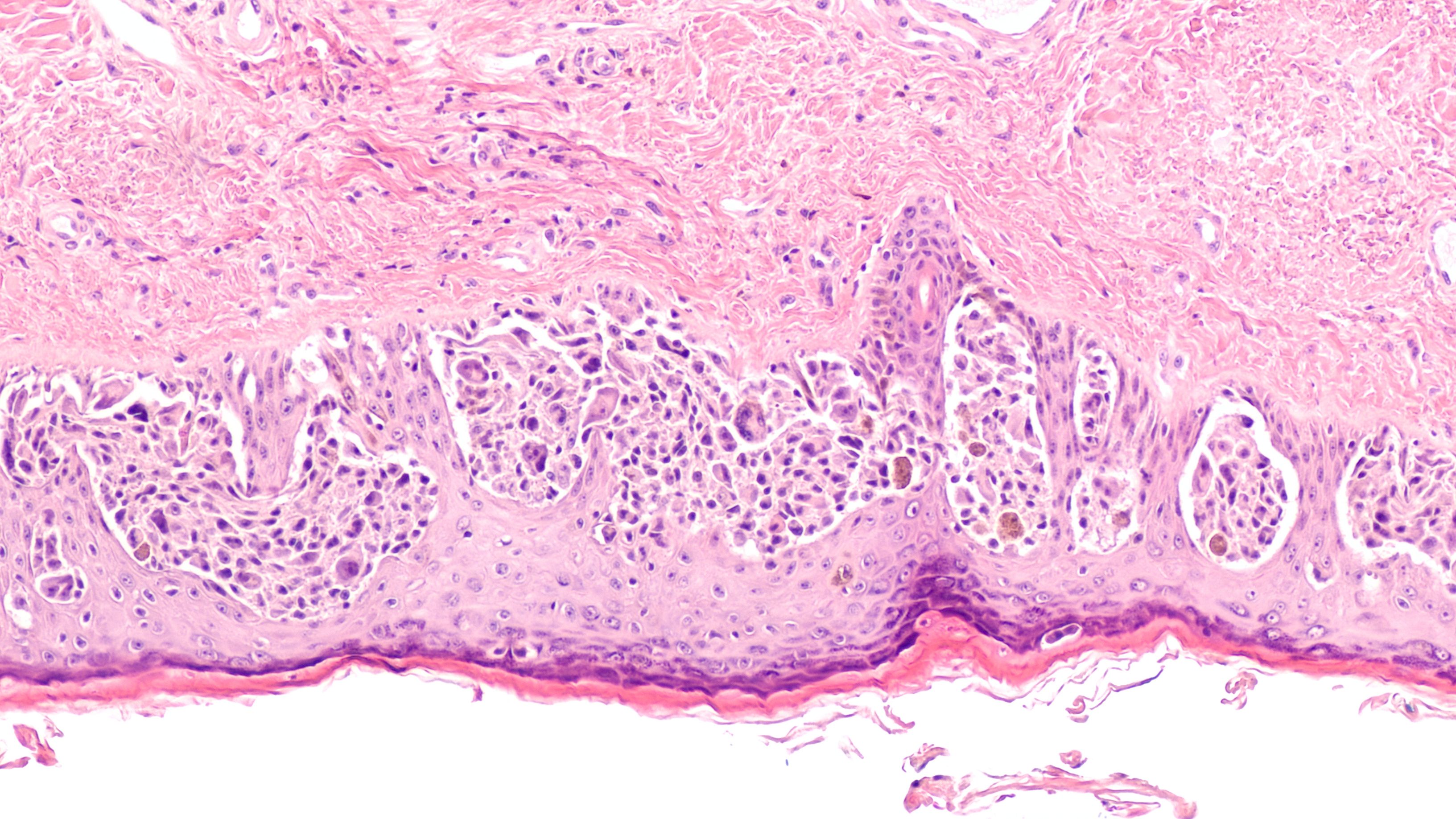BNT111/Cemiplimab Shows Significant ORR Improvement in Stage III/IV Melanoma
The investigational mRNA therapy BNT111 plus cemiplimab showed better overall response rates compared with historical controls in patients with stage III/IV melanoma refractory to anti-PD-(L)1 therapy.
Melanoma: © David A Litman - stock.adobe.com

A phase 2 trial (NCT04526899) investigating an investigational mRNA cancer immunotherapy, BNT111, plus cemiplimab (Libtayo) in patients with unresectable stage III or IV melanoma whose disease had progressed following anti-PD-(L)1 therapy met its primary end point of overall response rate (ORR).1
The complete data will be presented at an upcoming medical meeting and published in a scientific journal.
“These phase 2 results mark a significant step towards our vision of personalized cancer medicine. We envision mRNA as a centerpiece in future treatment paradigms for cancer, helping to address unmet medical needs, such as for patients with anti-PD-(L)1 refractory or resistant melanoma,” said Özlem Türeci, MD, chief medical officer and co-founder at BioNTech, in a press release.
There was a statistically significant improvement in ORR among patients treated with BNT111 plus cemiplimab vs historical controls in this patient population, and clinical activity was observed in both randomized monotherapy arms. In the cemiplimab monotherapy arm, the ORR was consistent with historical controls of anti-PD-(L)1 or anti-CTLA-4 therapies in this intent-to-treat population.
Regarding safety and tolerability, the combination was well-tolerated, and the safety profiles of the agents were in line with previous reports.
The phase 2 trial will continue to assess secondary end points, as the data were not mature at the time of this analysis.
“These data are a proof of concept for us in three dimensions: First, for our decade-long improved mRNA cancer vaccine technology that uses uridine mRNA chemistry, a noncoding backbone that is engineered for optimal translational performance and our proprietary lipoplex formulation for delivery. Second, for our computational approaches for selecting suitable tumor antigens for our cancer indication-specific FixVac platform candidates. Third, for our strategy to combine synergistic modalities, in this case BNT111 with an established immune checkpoint treatment,” added Türeci.
In 2021, the FDA granted BNT111 a fast track designation, intended to expedite the development and review of agents that fill unmet medical needs.2
About the Phase 2 Study of BNT111
The study has enrolled 184 patients across 53 locations with unresectable stage III or IV melanoma that is refractory of anti-PD-(L)1 agents.3 Patients were randomized to receive BNT111 plus cemiplimab, BNT111 monotherapy, or cemiplimab monotherapy. The study’s primary end point was ORR in the combination arm, and secondary end points include ORR in the monotherapy arms, duration of response, disease control rate, time to response, progression-free survival, overall survival, incidence of adverse events, and changes in laboratory levels.
To be eligible for participation, patients needed to be 18 or older with histologically confirmed disease, known BRAF mutation status, an ECOG performance status ≤ 1, and adequate bone marrow function. Patients should not have received more than 5 prior lines of treatment and could not have any known primary immunodeficiencies.